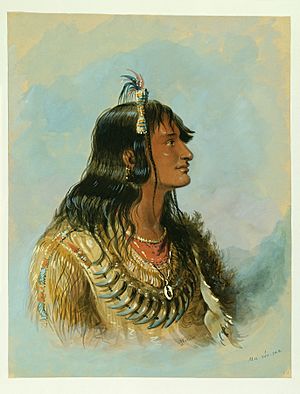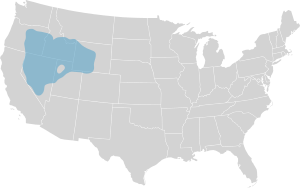Snake Indians facts for kids
The Snake Indians is a name that was used to describe several groups of Native American tribes. These tribes include the Northern Paiute, Bannock, and Shoshone peoples. It's important to know that "Snake Indians" is an old term, and today we usually refer to these groups by their specific tribal names.
This name was first used a long time ago. In 1739, a French explorer named Pierre Gaultier de Varennes, Sieur de la Verendrye heard about the "Gens du Serpent" (which means "Snake people") from another tribe called the Mandans. This might be the first time the Shoshone people were mentioned in writing. British explorers like David Thompson and Anthony Henday also used the term "Snakes" for the Shoshone.
Later, many American settlers traveling on the Oregon Trail used this term. They often used it when they were in the Snake River and Owyhee River valleys. These valleys are located in what is now southern Idaho and Eastern Oregon. Over time, the name "Snake Indian" also started to include the Northern Paiute tribes. These tribes lived in the areas between the Cascade Mountains and the valleys, stretching into Oregon, northern Nevada, and northeastern California. These groups were involved in conflicts, like the Snake War, with the U.S. Army and volunteer soldiers from California, Oregon, and Washington.
The Name "Snake Indians" in Canadian History
The term "Snake Indians" also appears in Canadian history. Between 1688 and the 1720s, British traders met with the Western Cree and Blackfoot tribes. These two groups were fighting a war against "the Snake Indians" of Canada. It's not completely clear if this name referred to the same Northern Paiute people mentioned earlier, or if it was used differently in Canada.
Today, in the modern Plains Cree language, the term "kinêpikoyiniwak / ᑭᓀᐱᑯᔨᓂᐘᐠ" is used. This term literally means "Snake Indian" and refers to the Shoshone people.
 | Percy Lavon Julian |
 | Katherine Johnson |
 | George Washington Carver |
 | Annie Easley |



